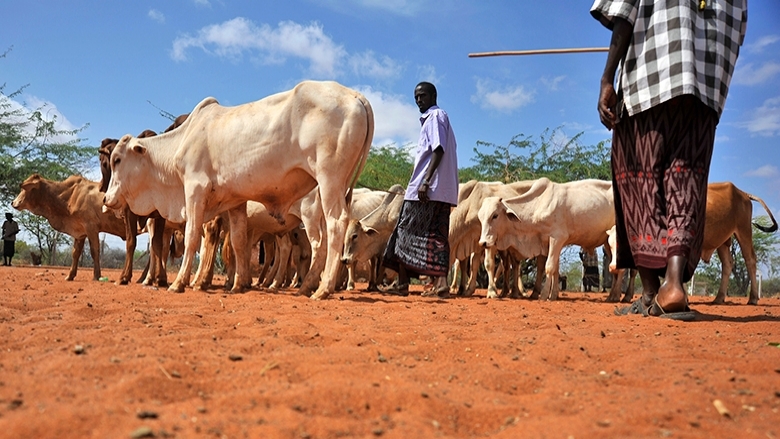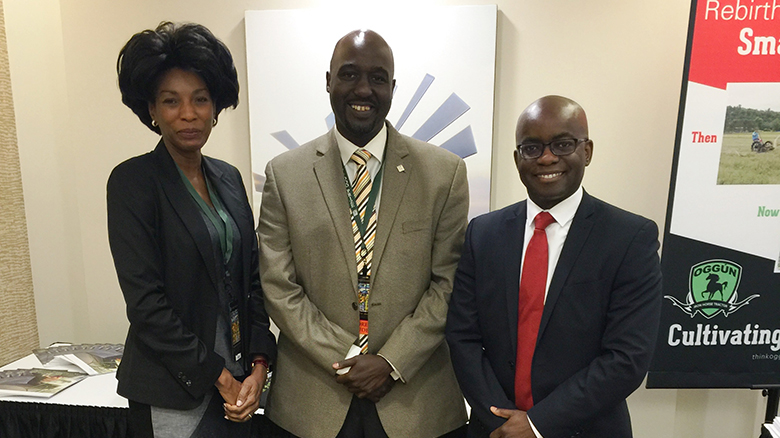In his award speech, Mude recounted the experience of collaborating with the World Bank in 2006 when he joined ILRI. Subsequent involvement with the World Bank’s project, Kenya: Adaptation to Climate Change in Arid and Semi-Arid Lands (KACCAL), inspired Mude to continue to fine tune innovative solutions to protect smallholder farmers and herders in the Horn of Africa against climate-related risks.
The "Index-Based Livestock Insurance (IBLI) project," which he started at the ILRI, borrowed the principle of index-based insurance using an index to trigger an insurance payout and applied it to livestock.
Using satellite to monitor grazing conditions which are used as a proxy for the health of livestock, insurance payouts are made to herders whose animals have been killed by drought.
This way, insurance claims adjusters don’t need to travel throughout the region to confirm dead animals and pay claims. This has resulted in greater access to finance for herders, as they receive payouts immediately after a drought to help them replace their killed livestock.
Initially supported by the Global Index Insurance Facility (GIIF) at its pilot stage, and then scaled up through the Disaster Risk Finance and Insurance Program (DRFI), Mude’s approach has been hailed not only for its innovation, but also for the impact it has made on people’s lives. Since its onset in 2010, more than 16,000 families in Southern Africa have been insured by Dr. Mude’s program. Over time, financial access has prevented households from falling back into destitution. On a daily basis, it prevents them from going to bed hungry every night. Herders use insurance payouts to secure a source of food as well as to keep their remaining of their livestock alive for milk production.
According to a recent World Bank report on climate change, climate impacts are affecting agriculture the most. The dire problem will be most severe in Africa, where by 2030 crop yield losses could mean that food prices would be 12% higher on average.
The call for action on food security echoes those of many actors in the development community. While progress has been made, more can be done, especially in the financial sector. With less steady income, poor people generally have a lower ability to adapt and shield themselves from food insecurity.
Considering the inseparable link between food security and changing climate, the world needs all types of innovations to lift the poor out of poverty and help them build resilience.
Individuals such as Mude, and their work to promote knowledge transfer, are the engines of real, positive change.
Index insurance pilot projects are now moving into the second phase — to scale up into real market opportunities. GIIF looks forward to providing more support to the private sector through Public-Private Partnerships (PPPs) by encouraging more private investment in projects initiated by smallholder agriculture and agribusiness SMEs. GIIF also supports climate smart technologies that promote resilience and combat climate change. In addition, GIIF aims at building both financial literacy and knowledge around resilience to climate change among the stakeholders.


